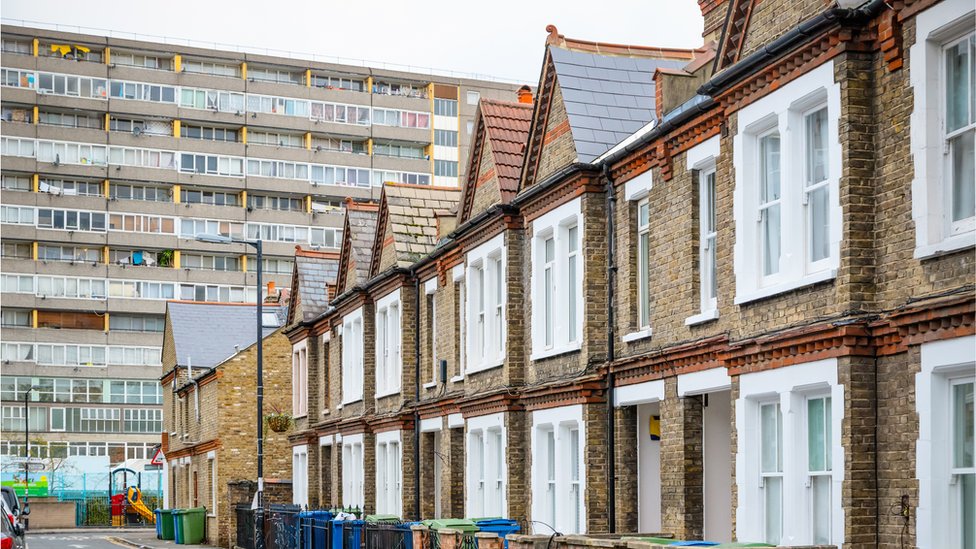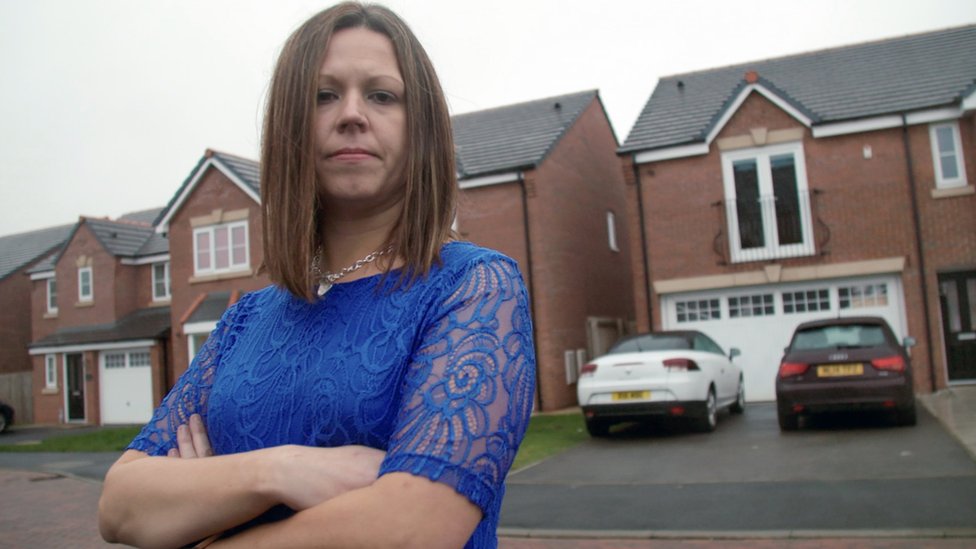
Planned reforms of the controversial leasehold system in England are set to clamp down on high costs when extending a lease.
The government’s proposals should help those with shorter leases fearing bills of many thousands of pounds.
Former council tenants who bought their homes in the 1980s are likely to be among those who could benefit.
Campaigners gave the complex proposals, which could affect up to four million homes, a guarded welcome.
Some have dubbed the system as “fleecehold”, owing to issues over escalating rents and high charges.
While they welcome protections for leaseholders in the future, many believe they should be paid compensation for unjustified charges and rents in the past.

The difference between a freeholder and a leaseholder
Someone who owns a property outright, including the land it is built on, is a freeholder.
With a leasehold, the person owns a lease, which gives them the right to use the property. But they still have to get their landlord’s permission for any work or changes to their homes.
When a leasehold flat or house is first sold, a lease is granted for a fixed period of time, typically between 99 and 125 years – but sometimes up to 999 years. People may extend their lease or buy the freehold, but this can be complicated and expensive and involve legal fees.
Leasehold house owners are also often charged expensive ground rent as well as fees if they want to make changes to their homes. A leasehold house can also be difficult to sell.

Changes planned
When a homebuyer purchases a leasehold property, they do not possess it outright. Instead they gain the right to occupy it for a set number of years.
They can extend their lease by applying to their freeholder and negotiating a fee.
Part of this fee is called the marriage value – representing the increase in the value of the property once the lease has been extended.
Under the government’s plans, the marriage value will be abolished – following recommendations by the Law Commission.
Ministers say this will make charges more transparent when it comes to extending a lease.
“Across the country people are struggling to realise the dream of owning their own home but find the reality of being a leaseholder far too bureaucratic, burdensome and expensive,” said Housing Secretary Robert Jenrick.
The Leasehold Knowledge Partnership, which advises leaseholders, welcomed some of the moves but said it needed more details on how the new calculations would work, how much an extension would cost, and whether it would be cheaper for everyone.

Mr Jenrick claimed that there would be savings of between £8,000 and £9,000 for the average leaseholder buying their freehold.
He said the government was working with the housing sector to develop commonhold as a potential alternative to leasehold in flat purchases in the years ahead – where flat-owners held the freehold to their property, but blocks were jointly-owned and managed.
He said he was working towards a “widespread take-up of commonhold over the course of this Parliament”, which would signal what the future should look like “beyond leasehold”.
Paediatric nurse Katie Kendrick was told she could buy the freehold on her Cheshire home for between £2,000 and £4,000 two years later, only for it to be sold on to an investment company which quoted her more than £13,000.
Her experience led her to become one of the founders of the National Leasehold Campaign, describing the system as a relic of a feudal age. She said the government’s plans marked “the start of the end for leasehold”.
However, the campaign called for the changes to be made quickly to get many leaseholders out of the existing limbo.
Zero ground rent
The initial part of the plan will see leaseholders given the opportunity to extend their lease for 990 years – reducing risks of the property becoming more difficult to sell.
Under current rules, leaseholders of houses can only extend their lease once for 50 years with a ground rent.
This compares to leaseholders of flats who can extend as often as they wish at a zero ground rent for 90 years.
The government wants legislation in the current session of Parliament to allow house and flat leaseholders to extend their lease to a new standard 990 years with the ground rent set at zero.
Although developers say leasehold can work for many people, the government has already said that ground rents should be set to zero for new leases. Under its new proposals, these rules should also apply to retirement leasehold properties, for homes built specifically for older people.
That move was welcomed by Propertymark – the professional body for estate agency staff, which has campaigned on the issue.
“While we welcome the government’s initiative to reduce ground rents to zero for all new retirement properties, we would argue this needs to be extended to all retirement properties to create a level playing field,” said its chief policy adviser Mark Hayward.


